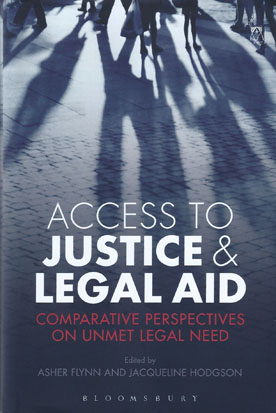
This book considers how access to justice is affected by restrictions to legal aid budgets and increasingly prescriptive service guidelines, which are a controversial and hotly contested part of the contemporary global legal landscape.
As common law jurisdictions, England and Wales, and Australia, share common ideals, policies and practices. Yet, they also differ in aspects of their legal and political culture, in the nature of the communities they serve, and in the approaches adopted by their respective judiciaries. They provide us with different perspectives on access to justice and how we might seek to overcome the crisis in unmet legal need.
The book fills an important gap in existing scholarship as the first to bring together new empirical and theoretical knowledge examining different justice responses to legal aid crises in these jurisdictions in both domestic and comparative contexts, across the realms of criminal, civil and family law.
It achieves this by examining the broader social, political, legal, health and welfare impacts of legal aid cuts and prescriptive service guidelines. It is essential reading for all those interested in access to justice and legal aid.